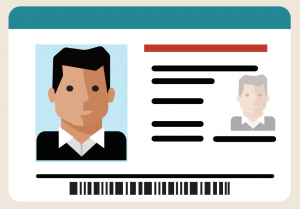The South Korean government has officially released two sets of previously promised guidelines that specify cryptocurrency regulatory measures. In addition to details of the new real-name system to end anonymous trading of cryptocurrencies, the government also published its anti-money laundering guidelines for banks providing services to cryptocurrency exchanges.
Also read: Cryptocurrency Activities Will Be Legal and Tax Free in Belarus Starting in March
Implementation of Crypto Measures
On Tuesday, the South Korean government officially released a document containing the guidelines for cryptocurrency regulations it previously promised. The announcement was made by Vice Chairman of the Financial Services Commission (FSC), Kim Yong-bum.

This document details the government’s Special Measures for the Elimination of Virtual Currency Speculation which was first announced on December 28. In addition, the government also announced on Tuesday its anti-money laundering (AML) guidelines, prepared by the Korean Financial Intelligence Unit (FIU), an FSC division, for all banks dealing with cryptocurrency accounts to follow.
Converting to Real-Name System
A large part of the government’s special measures concern the new government-mandated real-name account system. This system will replace banks’ current practice of virtual account issuance. Virtual accounts are issued by banks for cryptocurrency exchanges’ customers to use to deposit and withdraw money.
 On January 30, the real-name system will be live for deposit and withdrawal services to cryptocurrency accounts. Existing virtual accounts will be converted to real-name ones at that time. Six major banks will implement the new system including Shinhan Bank, Nonghyup Bank, Kookmin Bank, Hana Bank, and Gwangju Bank.
On January 30, the real-name system will be live for deposit and withdrawal services to cryptocurrency accounts. Existing virtual accounts will be converted to real-name ones at that time. Six major banks will implement the new system including Shinhan Bank, Nonghyup Bank, Kookmin Bank, Hana Bank, and Gwangju Bank.
Customers need to open an account at the bank providing virtual account services to the exchange they are using. “New members should be added after strict identification procedures,” Kim was quoted by Joongang Ilbo. According to the document:
Users who do not have an account at the same bank as the virtual bank will not be able to make additional payments to the virtual bank [account], but they can withdraw money…Foreigner and minors under the Civil Law cannot use real name confirmation deposit and withdrawal account service.
AML and Suspicious Transaction Reporting
Earlier this month, the FIU and the Financial Supervisory Service (FSS) conducted on-site inspections of the country’s 6 major banks to ensure they have fulfilled their anti-money laundering obligations. The FIU subsequently created a set of anti-money laundering guidelines which was released on Tuesday.
 Crypto exchanges usually separate their funds from users’ funds. However, the government’s inspections revealed that “some exchanges were found to have collected funds from users through general corporate accounts opened at banks,” the Kyunghyang Shinmun reported.
Crypto exchanges usually separate their funds from users’ funds. However, the government’s inspections revealed that “some exchanges were found to have collected funds from users through general corporate accounts opened at banks,” the Kyunghyang Shinmun reported.
In some cases, customers’ funds were transferred to the bank accounts of the exchanges’ representatives. One exchange “collected funds from users through four bank accounts” into the company’s account “and spent 58.6 billion won” from it, the news outlet added. The financial authorities noted that this can lead to fraud and embezzlement.
The Hankook-Ilbo elaborated that banks are required to “monitor the exchanges [they service] for unusual transactions in accordance with the guidelines and, if suspected of money laundering, further confirm the transaction purpose and funding source,” adding that:
If the transaction amount is more than KRW 10 million per day, more than KRW 20 million for 7 days, or frequent transactions occur in a short time, it should be reported to the FIU, the money laundering monitoring authority. If the exchange has a high risk of money laundering or requires information, the bank may terminate the transaction.
What do you think of South Korea’s cryptocurrency guidelines? Let us know in the comments section below.
Images courtesy of Shutterstock and the Korean government.
Need to calculate your bitcoin holdings? Check our tools section.
The post South Korea Releases Official Guidelines for Cryptocurrency Exchanges and Banks appeared first on Bitcoin News.










